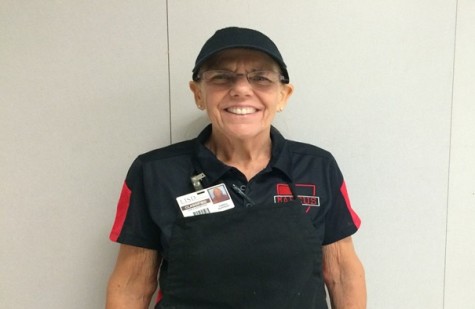
She never fails to greet every student with a contagious smile.
Students order their morning cup of coffee, and she promptly begins to prepare it, wringing her hands and going straight to work. The coffee machine hisses and breathes out a cloud of steam while she cheerfully asks how they are doing. As she finishes up a drink and wipes up any spills, she flashes another luminous grin, hands a student their warm mocha, and wishes them a great day.
Mrs. Caren Ruppert, also known lovingly by students as simply “the coffee lady”, proudly describes herself as service-oriented. Before she moved to Texas and starting serving high schoolers, she served senior citizens in her friend’s luncheon program in Santa Cruz, California.
“It was her non-profit organization that ran this program,” Ruppert said. “And so she asked me, would I be interested, because I used to volunteer. And then she asked me, ‘Hey, do you want to come on staff?’ And so I did that for 15 years.”
Every time she would work, Ruppert was given a list of guests that she’d pick up for the day. She drove all over Santa Cruz to pick up the residents. Some lived at their own home, while others lived in a care facility for dementia and Alzheimer’s patients.
After arriving at the luncheon the staff would open with a cheery welcome, making sure to share a little about each senior and their life, always closing with a prayer and lunch. Afterwards, the seniors would enjoy rounds of bingo, music, and dessert before it was time to take everyone home.
“It was just wonderful to honor the seniors because a lot of times, they’re the forgotten ones,” Ruppert said. “We would always want to make them feel special. And I don’t care if they ask the same question 100 times, we would just answer them as though it was the first time they asked. I loved working with them.”
Even years later, she remains connected to the lives of the residents she worked with.
“Each of the seniors that I met, their lives meant so much to the world. When I think of them, I just see all of them around the table, and that their lives were full, and they had families, and each one of them meant something special,” Ruppert said.
